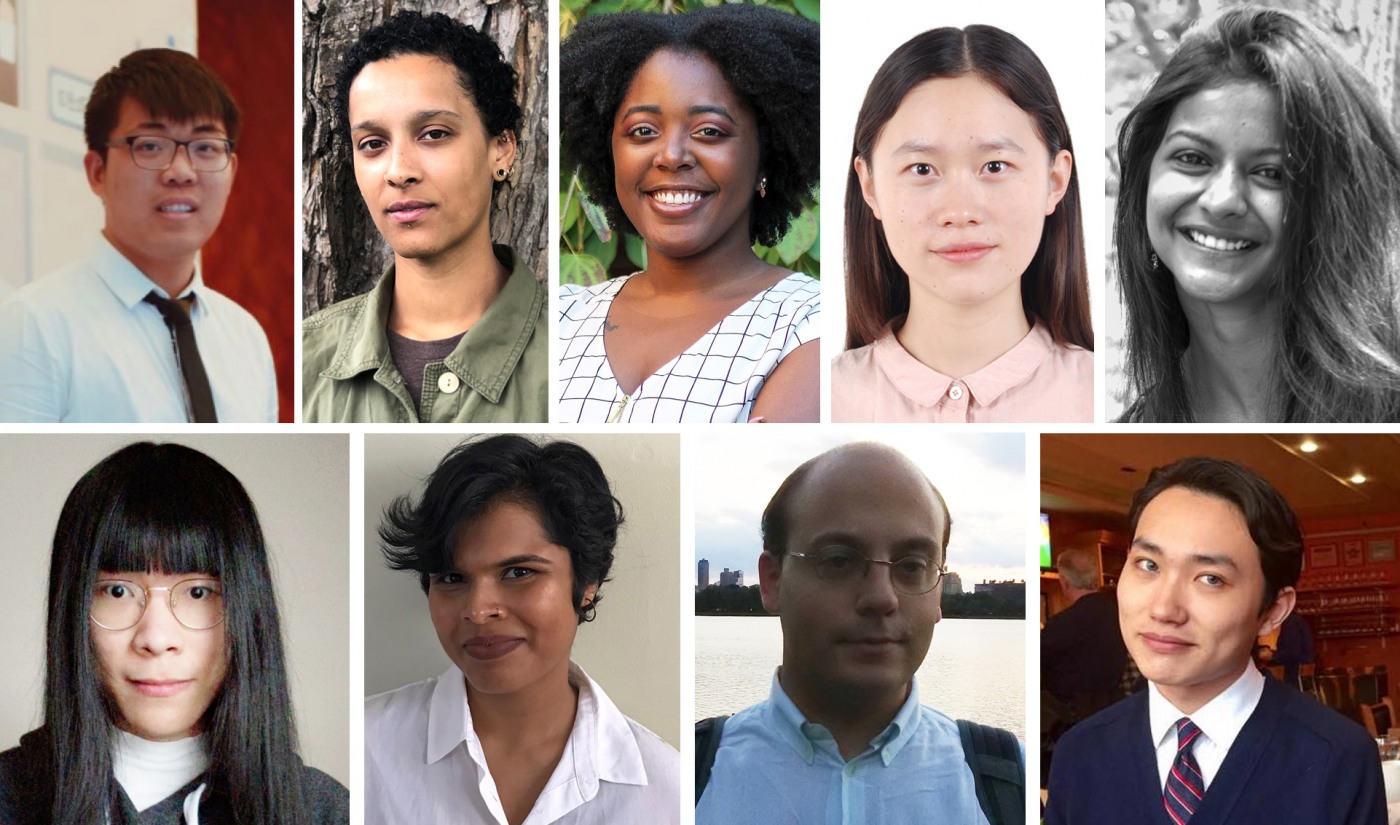Open Graduate Education Scholars push academic boundaries through their scholarship
The 10 newest members of the Brown University Graduate School’s open education program will customize their Ph.D. studies by seeking a master’s degree in a secondary field.

PROVIDENCE, R.I. [Brown University] — For the past 50 years, Brown’s reputation for personalized, boundary-defying academic study has largely been built upon the Open Curriculum — the University’s signature approach to undergraduate education, which invites students to customize coursework, combining typically distinct areas of study in ways that support their specific intellectual interests.
But the University’s Graduate School also offers students the opportunity to hone expertise that transcends traditional areas of study. Since 2011, the Open Graduate Education Program has invited Ph.D. students to customize their graduate education — and enhance their research pursuits — by seeking a master’s degree in a secondary field.
Each year, the Graduate School selects roughly 10 students among applicants from departments across the University to join the program. Its newest cohort, selected as the Spring 2020 semester concluded, includes students who have paired disciplines as diverse as anthropology and music, computer science and philosophy.
Gaining upper-level training in multiple disciplines allows graduate students to look at their primary discipline in new ways, says Ahona Palchoudhuri, a Ph.D. student in anthropology who, as a member of the Open Graduate Education Program’s newest cohort, will also undertake master’s studies in music.
“The program allows me to simultaneously ground myself in two disciplines, thereby gaining a sharper insight into the ways in which they depart and draw from one another,” she said.
For Albert Webson, a Ph.D. student in computer science, the program will allow him to meld his computer science research with his enduring scholarly interest in political philosophy. Webson said that combining these areas of expertise will directly inform his research, which seeks to ground AI-generated language within social-political contexts.
“Ideally, after graduation, I will seek a joint faculty appointment between a department of computer science and a department of philosophy that will enable me to continue to research and teach in the intersection of artificial intelligence, political science and philosophy,” he said.
For history of art and architecture Ph.D. student Pamudu Tennakoon, pursuing graduate work in anthropology will widen the scope of her research — which examines public colonial architecture in present-day countries — by allowing her to draw broader comparisons between urban and rural environments, different postcolonial countries, and different contemporary and historical approaches to colonial architecture.
“I find this program to be very important for those graduate students, like myself, who are interested in pushing the boundaries of disciplines, as it will allow us to begin with a strong foundation in more than one field,” Tennakoon said.
Lingyu Ma — a chemistry Ph.D. student who will pursue a master’s in computer science — agrees: “The knowledge and skills gained from these courses can not only provide me with new ideas, but also give me powerful tools to solve scientific problems I meet.”
This year’s cohort includes 10 doctoral students, each of whom will seek a master’s degree in a separate field:
- Tong Cai, Ph.D. in chemistry, master’s degree in innovation management and entrepreneurship
- Christopher Cox, Ph.D. in Egyptology and Assyriology, master’s degree in Africana studies
- Sarah Davenport, Ph.D. in anthropology, master’s degree in Africana studies
- Kiara Lee, Ph.D. in biomedical engineering, master’s degree in global public health
- Lingyu Ma, Ph.D. in chemistry, master’s degree in computer science
- Ahona Palchoudhuri, Ph.D. in anthropology, master’s degree in musicology and ethnomusicology
- Dawei Si, Ph.D. in chemistry, master’s degree in computer science
- Pamudu Tennakoon, Ph.D. in the history of art and architecture, master’s degree in anthropology
- Marko Vitas, Ph.D. in classics, master’s degree in Egyptology and Assyriology
- Albert Webson, Ph.D. in computer science, master’s degree in philosophy
This story was adapted from an article published by the Graduate School. The original piece can be read on the Graduate School website.